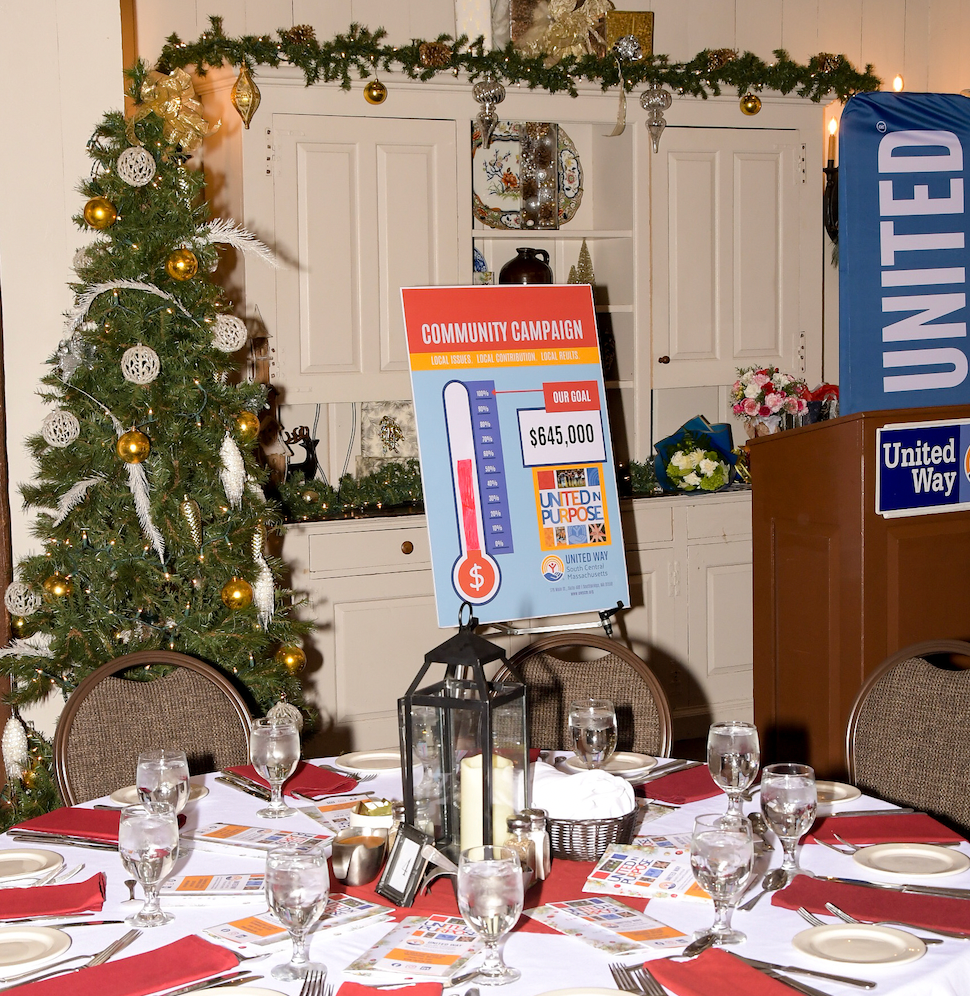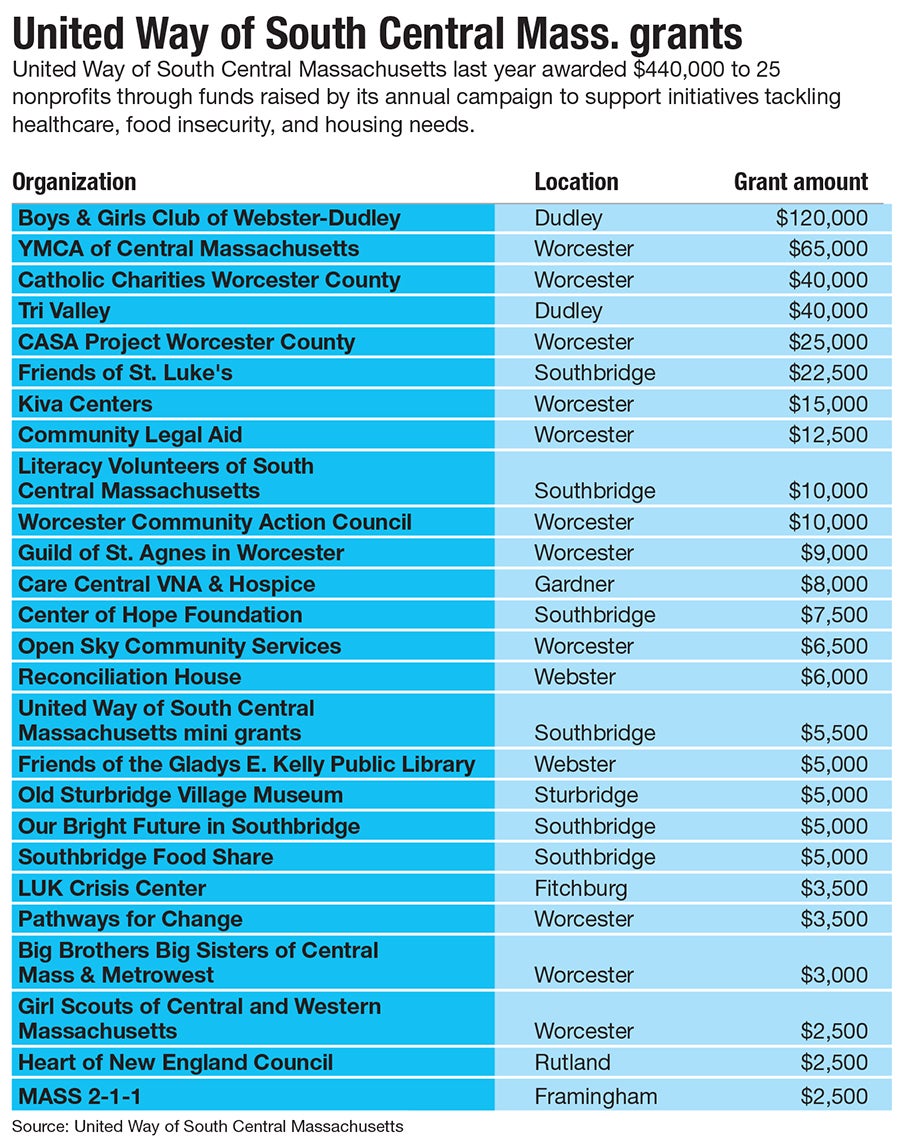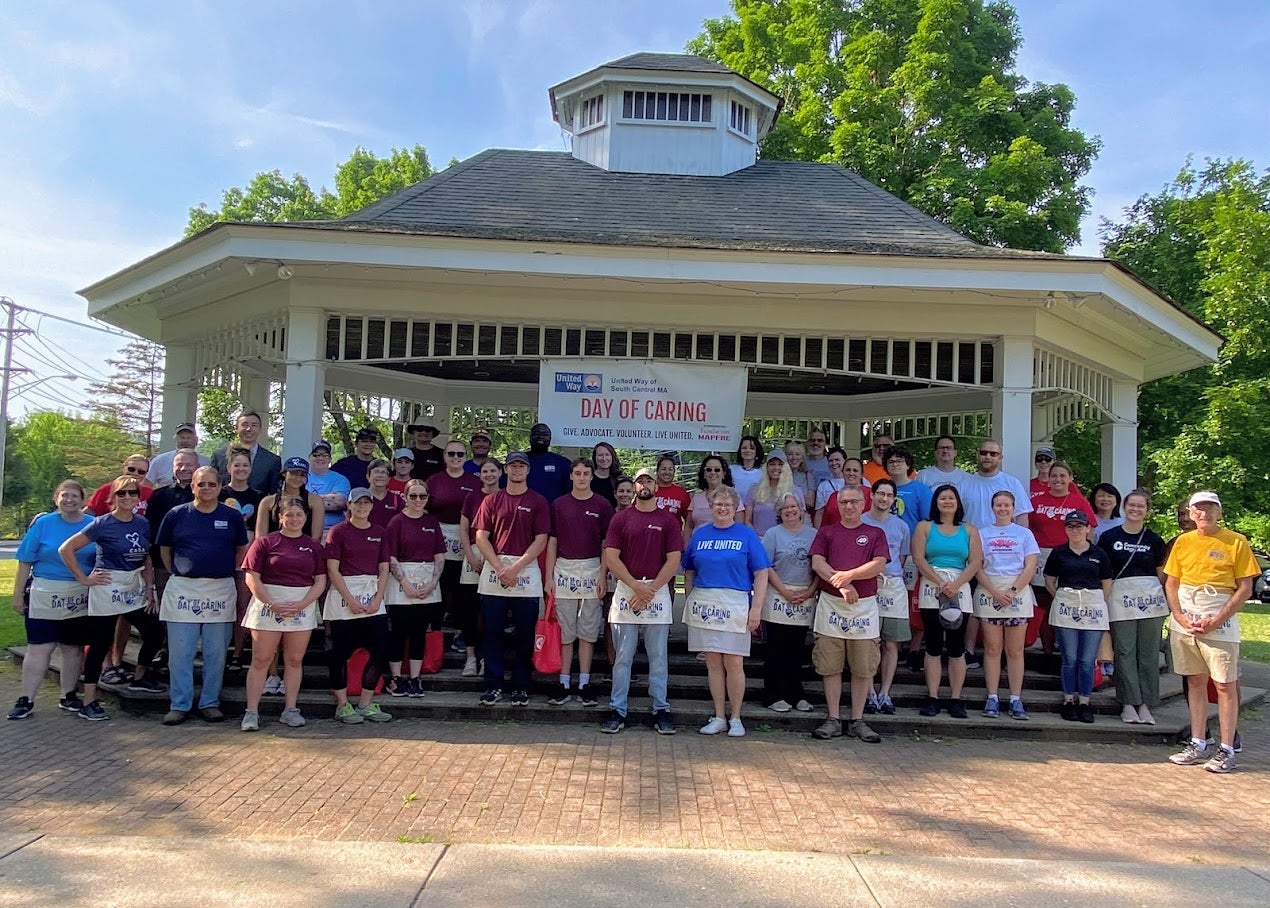Just before the new year, United Way of South Central Massachusetts appointed nonprofit veteran Kristin McCarthy as its new leader.
Get Instant Access to This Article
Subscribe to Worcester Business Journal and get immediate access to all of our subscriber-only content and much more.
- Critical Central Massachusetts business news updated daily.
- Immediate access to all subscriber-only content on our website.
- Bi-weekly print or digital editions of our award-winning publication.
- Special bonus issues like the WBJ Book of Lists.
- Exclusive ticket prize draws for our in-person events.
Click here to purchase a paywall bypass link for this article.
In September, Mary O'Coin announced she would retire at the end of 2024 as executive director of United Way of South Central Massachusetts following a nine-year tenure with the Southbridge-based nonprofit. Just before the new year, the organization appointed nonprofit veteran Kristin McCarthy as its new leader. McCarthy comes to her new position having spent nearly 20 years at neighboring nonprofit Tri Valley in Dudley, and she is looking forward to expanding UWSCM’s reach, addressing pertinent issues such as food insecurity and housing within the region.
What drew you to the position at UWSCM?

I've worked in nonprofits for 17 years with Tri Valley, and 15 of those years were spent working in the nutrition program. Through that program we received funding from the United Way, so I understand how important that funding can be to help a program run.
When I heard about Mary retiring, I became interested in the position because I thought it would be a way to stay in the nonprofit sector, to keep helping people, and to help even more people than I was helping before. Instead of working for just one agency and just one very specific group of consumers, I am now working with a whole bunch of different agencies and people of all different ages. The impact of what we do is so much more far reaching. It seemed like an exciting opportunity to do something new.
How do you plan to approach delegating funds and prioritizing requests when so many local agencies have needs?
It's tricky. Every year, it seems the need is greater. We run a campaign every year to raise funds, and agencies and programs in our service area will apply to get funding. We have a committee that looks at the applications, reviews them, and then makes the decisions as to how the funding is going to be allocated.
While the committee makes recommendations, they get my input. I look at the programs I think are going to benefit the most people and where the funding will have the most impact.

You’ve been quoted saying you’re looking to strengthen the organization’s impact. How are you looking to do that?
I'm hoping we can have a successful workplace campaign and fundraising campaign this year, so we will hit our goal of $645,000. I want to do more to get the word out to people about the benefits of working with the United Way. When you donate to us, we have the ability to take that money and fund so many different programs; it's an easy way to have an impact in your community.
I'm planning to get out there and do community events, and I've got to get involved in the chamber of commerce and different groups to get out there and be seen. We’re talking about doing some new things, specifically here in Southbridge, to try to get the word out to people about what kind of services might be available to them and what agencies they could go to for help.
United Way supports local organizations providing health, education, and financial stability services in the region. What are some of the most pressing needs you’re witnessing in the South Central Mass. community?
Food insecurity is a big one, and it's not just here.That has become a statewide issue. Food costs continue to rise, and we continue to have issues with supply. That has become a real strain for a lot of families. The expense of housing has been a real issue, too.
We address these needs through the agencies that we work with. A lot of them have food programs.They have food education programs. They might have healthy eating programs to teach people better ways to shop for food and use that food. They may connect with food pantries and food banks, those types of organizations.

As executive director, one of your key responsibilities is overseeing fundraising and grantmaking initiatives. What strategies do you have in mind to ensure United Way’s financial sustainability, especially in today’s economic climate?
We're trying to think of some new ways to get people interested in donating, including more events. It's been really tough this past year for anybody trying to fundraise. It's been a tough economy, so it's been difficult to get people to give maybe as much as they used to, or to give it all.
We're going to try to come up with different things people can do to give but might have a little bit of fun as well. We’re going to do our pub quiz again this year, and a lot of the other things are still in the planning stages.
What kinds of improvements do you want to achieve in the next five years?
Hit our fundraising goals with hopefully bigger numbers, which we're going to need if we want to help more people. Maybe some more tech-type advances. For example, we're going to use a new system to allow people to submit their applications for funding and to track and report.
We do have our Day of Giving, which is always a big one. I'd like to see if we can maybe come up with some more events where we can get the volunteers involved in helping us do things like that in the community.
This interview was conducted and edited for length and clarity by WBJ Staff Writer Mica Kanner-Mascolo.
